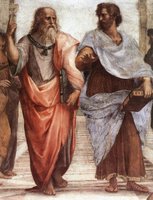"My Preciousssss!"

One of my favorite, if not thee favorite of mine, books to read is Lord of the Rings. I can remember as a little boy hearing of stories about hobbits and elves and wizards and dwarves; of Bilbo Baggins and his adventures; of Frodo and his quest to destroy the One Ring. Although I must say that it has only been in recent months that I have been able to read through Tolkien's masterpiece and enjoy it for what it is.
Why do I love this book so? Perhaps C. S. Lewis says it better than I will ever be able to; "Here are the beauties which pierce like swords or burn like cold iron."
One of those beauties which burns like cold iron is Tolkien's profound ability to explain the themes of Pity and Mercy. Indeed these two themes are seen throughout the book, especially in regards to that despicable creature Gollum. To be honest, a creature, in many ways, no different than myself (although I like to think I am a little more handsome than Peter Jackson portrayed him!).
The themes of pity and mercy can be seen in the following dialogue between Frodo and Gandalf,
"What a pity that Bilbo did not stab that vile creature, when he had a chance!'
'Pity? It was Pity that stayed his hand. Pity, and Mercy: not to strike without need. And he has been well rewarded, Frodo. Be sure that he took so little hurt from the evil, and escaped in the end, because he began his ownership of the Ring so. With Pity.'"
Interestingly, as a reader reading from an omniscient viewpoint I disagreed with this at first. An evil creature like Gollum, who only does evil continuously, certainly deserves to die. It may be true that Gollum leads Frodo and Sam to Mount Doom, but in the end it is Gollum who turns on Frodo and tries to take his precious back. Certainly, we should not allow this creature to live. There must have been someone else who could have led these two hobbits to Mordor and Mount Doom?
Tolkien answers these questions if you read on. Gandalf says to Frodo,
"Many that live deserve death. And some that die deserve life. Can you give it to them? Then do not be too eager to deal out death in judgment. For even the very wise cannot see all ends. I have not much hope that Gollum can be cured before he dies, but there is a chance of it. And he is bound up with the fate of the Ring. My heart tells me that he has some part to play yet, for good or ill, before the end; and when that comes, the pity of Bilbo may rule the fate of many—yours not least."
Perhaps there are some parallels here between the mercy of Bilbo and the mercy of God (This is not to make light of God's mercy; indeed, God's mercy goes beyond the mercy of a mere hobbit)?
Pity and Mercy, Gandalf says, is to stay one's hand. To not strike without need. This is precisely what we see in the Bible when God exercises His mercy. It is God withholding His Just Wrath. Grace, as one of our pastors has said before, is receiving something you do not deserve. Mercy is not receiving something that you do deserve.
Notice further how much more merciful God is. Gandalf says we should be merciful because even the very wise cannot see all ends. But God can see all ends and yet he still exercises His mercy.
Why is God merciful? Because like Gollum, whether for good or ill, we all have a part to play in this grand narrative. God withholds His judgment perhaps to see one "cured before he dies"? Perhaps God may withhold his judgment to lead someone to Mount Doom to carry out His will?
There are a number of reasons that God may withhold His judgment. When I think about this, and I think about God withholding His judgment on me, I think that Gandalf may not have been so wrong after all!
What are your thoughts? Read more



